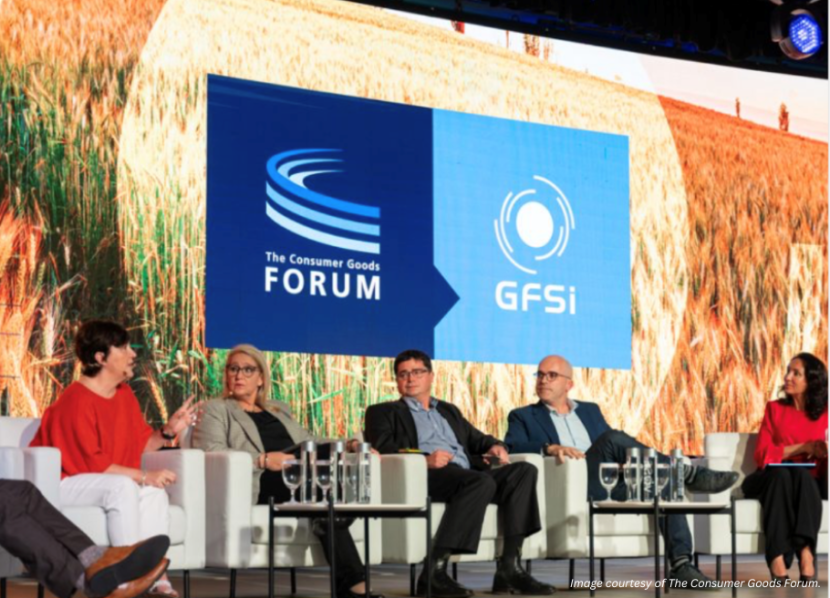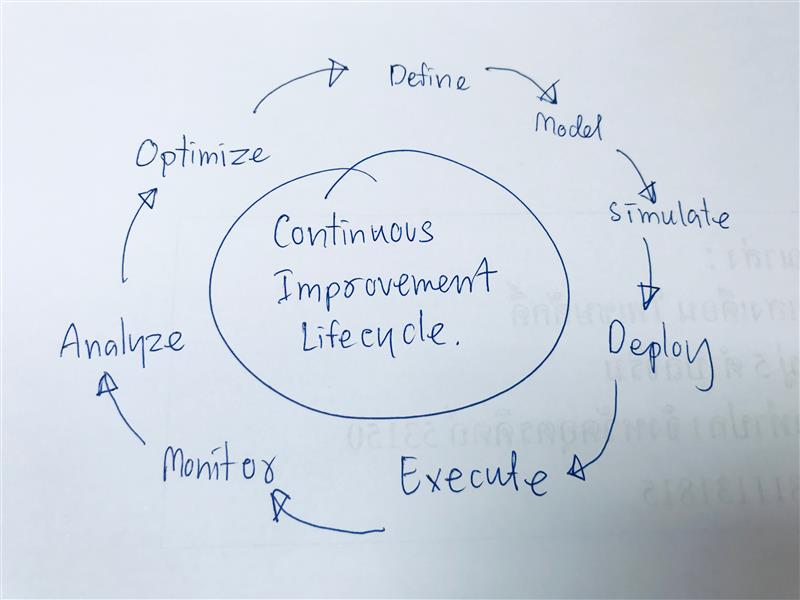GFSI 2025: Building Trust, Tech-Forward Solutions, and Global Unity in Food Safety
By Suzanne Barkley
Each year, the Consumer Goods Forum brings together hundreds of delegates from around the world to discuss the latest innovations being leveraged for food safety at the Global Food Safety Initiative (GFSI) Conference. From farm to fork, these thought leaders represent the entire food supply chain, including both private and public sectors.
This year’s GFSI Conference was held from March 31 to April 3, 2025, in Dublin, Ireland, and spotlighted the theme “Global Resilience: Forging a Sustainable Food Safety Future.” From connecting with clients and suppliers to meeting with industry peers, the conference underscored the supply chain’s commitment to this theme. Throughout the conference, delegates had multiple opportunities to attend sessions that addressed the most pressing challenges in today’s food supply chain, alongside actionable ideas and solutions to support their organizations and key stakeholders.
Innovative technology can serve as a powerful tool in bolstering risk management systems.
Here are a few key takeaways from this year’s event.
Transparency and harmonization are key to building trust
In multiple sessions, industry leaders emphasized the importance of trust as the foundation of food safety systems. This is critical as consumers increasingly become more critical of food organizations. By controlling the narrative, especially during a time of crisis, the food industry can demonstrate transparency.
Sean Summers, Group CEO of Pick n Pay, shared how the organization made the difficult decision to go public about an extortion attempt and, in doing so, controlled the narrative, serving as the primary source of truth.
Another hot topic was the impact of chemicals of concern, such as PFAS, in food production and packaging. Consumers now see contaminants as harmful ingredients, relying on the food industry to minimize exposure. NSF recently took a step toward reducing PFAS in food with its PFAS-Free certification for non-food compounds and food equipment materials.
In a tech talk session on the third day of the conference, Alison Friel, Director of Technical Services at NSF, explored the impacts sustainable initiatives have on food safety and how, through a strategic, risk-aware approach, organizations can achieve successful outcomes that protect both human and planet health. A common point of agreement was that sustainability and food safety must go hand-in-hand.
Across many of the sessions, GFSI’s core mission of “audited once, recognized everywhere” served as an anchor, with the harmonization of food safety audit standards helping to serve as a credible benchmark across regions.
Innovations in technology fuel proactive risk management
In today’s world of food safety, technological advances such as data management, artificial intelligence and whole genome sequencing are being leveraged to improve traceability and connectivity within and between organizations.
During a session titled “The Digital Revolution in Food Safety – Whole Genome Sequencing,” panelists shared how Whole Genome Sequencing (WGS) is being used to drive advances in root cause analysis, risk prediction and forecasting, and supply chain transparency. Applications of WGS include outbreak prevention, traceability, and factory health support.
Don Prather, Principal Deputy Director for Human Foods at the US Food and Drug Administration (FDA), shared how technology allows leadership teams to identify and address potential threats more accurately. He introduced the FDA’s genome tracker network as an example of how data sharing can enhance food safety, with machine learning helping to predict import issues.
Olivier Mignot, Vice President and Global Head of Quality Management at Nestlé, discussed the importance of an operator-centric approach in food safety. By using data to proactively monitor food safety and quality and sharing that data with the appropriate parties, technology can be used to build a more resilient supply chain.
Innovative technology can be a powerful tool in bolstering risk management systems and addressing crises when they occur. At the same time, using new technologies can present more significant risks to cybersecurity, requiring organizations also to prioritize information security.
Collaboration makes a greater impact
The GFSI Conference was a powerful reminder that our industry can achieve more together. This was demonstrated through the powerful keynote session with Niall Harbison, founder of global organization Happy Doggo, and the teamwork shared by the Food Safety Authority of Ireland. GFSI certification schemes can help drive initiatives and cascade food safety at all levels.
Through community engagement, organizations can build more resilient, equitable food safety systems while impactfully supporting corporate social responsibility initiatives. Furthermore, in leveraging the power of strategic communications, consistent messaging can be used to communicate with consumers across demographics, including generations, geographies, and cultural backgrounds.
As Sarah Krol, Vice President for Food & Nutrition at NSF, thoughtfully said, “Collaboration remains at the heart of driving progress and innovation in our industry.”
GFSI 2025 offered countless opportunities for delegates to connect with one another in real time and witness the impact of collaboration. In building trust, leveraging technology and breaking down silos, our industry can support a more resilient, safer food supply chain.
About the author:
As Senior Director, Food Production at NSF, Suzanne Barkley works with team leads and clients to ensure implementation and execution to global and national food safety certifications, including Global Food Safety Initiative (GFSI) benchmarked schemes. Her teams also support 2nd-party programs. Prior to joining NSF, Barkley held various positions within the food industry, including quality control technician, production manager, quality assurance manager and quality assurance director. She has worked at SAI Global, Sunrise Growers, Cool Creations, Pero Family Farms and Loffredo. Barkley holds a bachelor’s degree in food science, with a minor in food safety from Iowa State University.

-
 FeaturedRisk management
The Cost of a Breach: What a Cyberattack Could Mean for Food Safety Recalls
FeaturedRisk management
The Cost of a Breach: What a Cyberattack Could Mean for Food Safety Recalls
-
 FeaturedRisk management
Securing the Food Chain: How ISO/IEC 27001 Strengthens Cybersecurity
FeaturedRisk management
Securing the Food Chain: How ISO/IEC 27001 Strengthens Cybersecurity
-
 FeaturedRisk management
Revolutionizing Food Safety Training: Breaking Out of the “Check-the-Box” Mentality
FeaturedRisk management
Revolutionizing Food Safety Training: Breaking Out of the “Check-the-Box” Mentality
-
 GFSI Standards
GFSI 2025: Building Trust, Tech-Forward Solutions, and Global Unity in Food Safety
GFSI Standards
GFSI 2025: Building Trust, Tech-Forward Solutions, and Global Unity in Food Safety
-
 FeaturedFood Safety
Integrated Pest Management: Strategies to Protect Your Brand’s Reputation
FeaturedFood Safety
Integrated Pest Management: Strategies to Protect Your Brand’s Reputation
-
 FeaturedFood Safety Culture & Training
No Open Door Policy: Challenges That Impact Pest Control in Food Processing Plants
FeaturedFood Safety Culture & Training
No Open Door Policy: Challenges That Impact Pest Control in Food Processing Plants




